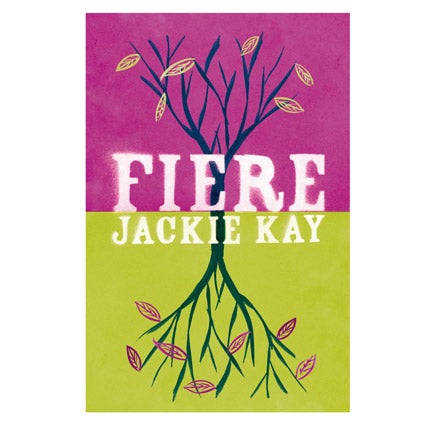Fiere, By Jackie Kay
A bilingual celebration of closeness

Your support helps us to tell the story
From reproductive rights to climate change to Big Tech, The Independent is on the ground when the story is developing. Whether it's investigating the financials of Elon Musk's pro-Trump PAC or producing our latest documentary, 'The A Word', which shines a light on the American women fighting for reproductive rights, we know how important it is to parse out the facts from the messaging.
At such a critical moment in US history, we need reporters on the ground. Your donation allows us to keep sending journalists to speak to both sides of the story.
The Independent is trusted by Americans across the entire political spectrum. And unlike many other quality news outlets, we choose not to lock Americans out of our reporting and analysis with paywalls. We believe quality journalism should be available to everyone, paid for by those who can afford it.
Your support makes all the difference.Many poems in Fiere (Scots for friend, mate, companion) grow out of the experience Jackie Kay had tracing her birth-parents, as chronicled in her memoir Red Dust Road. But this collection of 44 poems has a stronger focus, one which draws on Kay's unusual personal story but grows into a celebration of what it means to be close to someone.
It explores how important others are in our lives – in childhood shenanigans, in understanding parenthood, in seeing how sharing a life is what defines one's own. This becomes a kind of reclamation. In perhaps the most moving poem here, "The No-Longer Dead", she imagines those "who were so cold in their skin" returning, congregating, speaking happily, and "how strange and pleased you are to find them coming too,/ no longer gaunt". Kay extends this to the image of her son listening to her favourite singers, when she has died, and she finds it comforting. She is as at ease with death as she is with life.
Fiere is a kind and compassionate collection, gently optimistic. It moves with familiar and familial ease between continents, between dialects (Scots and Igbo, glossaries are provided), between generations. Reflective, but not especially introspective, its mood can be summoned up by a selection of phrases: "Tonight the stars are out for us,/ dancing"; "our lives woke to a dream of ourselves years ahead"; "we've had a whirl and a blast, girl".
Although Kay writes about coming to terms with age, and with those she has loved, there is hardly a moment of regret. She plays repeatedly on the continuity of past, present and future; imagines her recovering son "as if back/ from the long-lost, the missing and the dead". "What is age," she asks of the dying poet Edwin Morgan, "but another translation?"
In Nigeria, she sees a road "stretching/ perhaps into infinity/ to a foreseeable future/ and back to/ lost time". In another strong poem, "Night Moths", she captures ten red moths ("the ancestors come in many guises"), and releases them so that "the fluttering wings became a hello and a goodbye". Kay's poetry often seems a little unfinished, a little gauche, a little bit sentimental too. It is rarely very inventive as language. But it has a real power in its use of theme. Fiere has a naked honesty, an unvarnished voice, and a strong one too. This is very much Kay's best collection.
Join our commenting forum
Join thought-provoking conversations, follow other Independent readers and see their replies
Comments